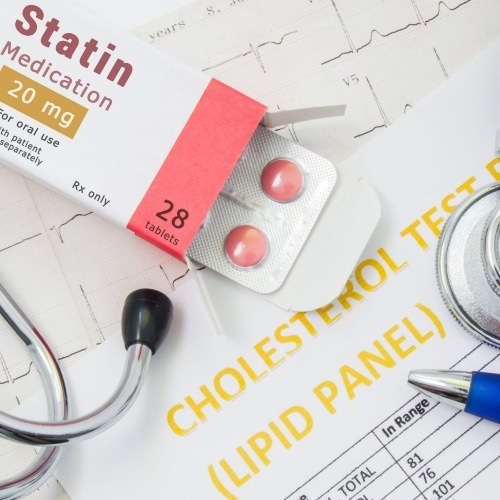One of the world’s largest studies on the impact of cholesterol-lowering medication has highlighted an issue with a new class of drugs that could impair lung function in some patients.

Image Credit: University of South Australia
That’s the finding from a recent University of South Australia study, the first in the world to compare cholesterol lowering medications (LDL-C drugs) to a range of clinical and heart and brain MRI biomarkers.
Genetic data from 340,000 UK Biobank participants was analyzed to explore the risks and benefits of LDL-C drugs. The outcomes have been published in the British Journal of Clinical Pharmacology.
In the vast number of cases, medication prescribed for high cholesterol does what it promises: significantly lowers the risk of cardiovascular disease, high blood pressure, diabetes, and age-related diseases. It does not cause any other adverse health conditions except diarrhea in some people.
However, lipid lowering medications that clear cholesterol from the cells – known as PCSK9 inhibitors – could impair lung function and further studies are needed on their long-term side effects, researchers say.
Genetic variants reflecting another cholesterol lowering medication, statins, were found to correlate with higher BMI and body fat, as well as reduced testosterone. Statins are the most common cholesterol lowering medication prescribed.
One unexpected benefit of taking statins was found, with some people seeing an increase in brain volume of the hippocampus, which may reduce the risk of dementia and depression.
UniSA PhD student Kitty Pham, lead author of the paper, says the findings highlight the importance of delving deeper to understand potential long-term effects of different medications.
“Our study reveals associations with lung function and brain size, which may influence how these drugs are prescribed or repurposed in the future,” Pham says. “These findings help us to understand how people may react to different drugs and assess the viability of new drug pathways.”
Compared to statins, which inhibit the production of cholesterol, PCSK9 drugs destroy cholesterol in the cells. The latter are a newer class of drug so less is known about their long-term safety.
Chief investigator Professor Elina Hypponen, Centre Director of the Australian Centre for Precision Health at UniSA, says genetic information was used to compare the outcomes of a range of LDL-C lowering drugs, working in different ways.
This normally would not be practical in a clinical trial or for such a large sample size, but genetic analyses such as the one we have conducted can really help with drug safety profiling by uncovering links with diseases and biomarkers.”
Professor Elina Hypponen, Centre Director, Australian Centre for Precision Health, UniSA
Source:
Journal reference:
Pham, K., et al. (2023). Genetically instrumented LDL‐cholesterol lowering and multiple disease outcomes: a Mendelian randomisation phenome‐wide association study in the UK Biobank. British Journal of Clinical Pharmacology. doi.org/10.1111/bcp.15793.